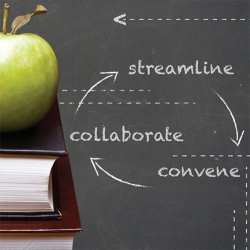Ten Years of IAALS: Breaking the “One Size Fits All” Mold for Case Management
IAALS is celebrating its 10th Anniversary in 2016. Throughout the year, we will be featuring guest posts from our colleagues and partners to recap our accomplishments and national impact—and look to the future ahead. The full series of posts will be collected here.
 IAALS made a clarion call for improvements to our courts some ten years ago, and since then has been instrumental in promoting rules changes, including the amended Federal Rules of Civil Procedure, effective December of last year. Those new rules have set sail with a rousing endorsement from Chief Justice John Roberts who, in his year-end report, described the amendments as “a major stride toward a better federal court system.” He also noted that the new Rules can only achieve the goal of a “just, speedy and inexpensive determination of every action and proceeding” (the promise of Rule 1) if “the entire legal community, including the bench, bar and legal academy, step up to the challenge of making real change.” IAALS continues to pursue that change, promoting the rules through educational programs, pilot projects, and a new culture necessary to make the changes successful.
IAALS made a clarion call for improvements to our courts some ten years ago, and since then has been instrumental in promoting rules changes, including the amended Federal Rules of Civil Procedure, effective December of last year. Those new rules have set sail with a rousing endorsement from Chief Justice John Roberts who, in his year-end report, described the amendments as “a major stride toward a better federal court system.” He also noted that the new Rules can only achieve the goal of a “just, speedy and inexpensive determination of every action and proceeding” (the promise of Rule 1) if “the entire legal community, including the bench, bar and legal academy, step up to the challenge of making real change.” IAALS continues to pursue that change, promoting the rules through educational programs, pilot projects, and a new culture necessary to make the changes successful.
My work with IAALS began some ten years ago shortly after I was appointed to the Federal Bench. I worked with the ACTL Task Force on Discovery and Civil Justice and invited IAALS to audit my docket to see where improvements could be made in our case management. As part of that audit, our entire Chambers Staff was interviewed, and IAALS gave us recommendations that have helped us immensely. It was a great educational experience for both me and my staff, and we have used that audit as a springboard to continue to improve the handling of our civil case load.
The importance of case management is also front and center in IAALS’ popular publication “Working Smarter, Not Harder: How Excellent Judges Manage Cases,” which was developed with the ACTL. I was interviewed for my insights, and am proud to be among the judges featured in the publication who share best practices with other judges, affirming the fundamental principal that “one size does not fit all.” Each case is unique in some way and deserves special attention, especially at the outset. In this regard, our Chambers has developed a valuable tool—a Civil Intake form—to make sure the case starts out of the gate quickly and to begin direct talks with counsel.
As I reflect back on these ten years and the work that IAALS has performed, it has exceeded expectations. The problems of slow dockets, expensive litigation, and lawyer abuses can now be overcome to achieve better access to our legal system, and assist all who are involved in the system to better accomplish the common goal of justice. IAALS has expanded into other projects, such as family courts, judicial selection, legal education, and partnerships with state courts. The next decade will certainly see the continued expansion and influence of IAALS in improving our justice system and creating better courts for tomorrow.
Congratulations to IAALS on helping set this new direction for our courts.



